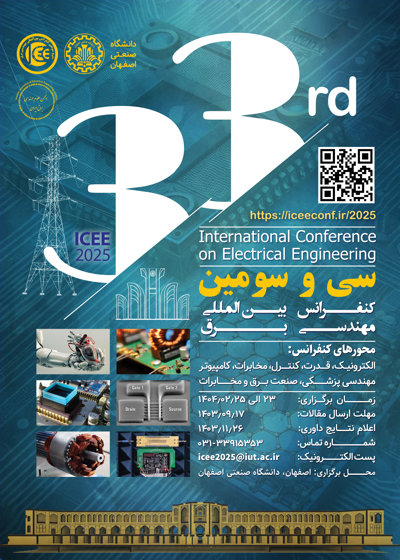0% Complete

نویسندگان :
کلمات کلیدی :
چکیده :
لیست مقالات بایگانی شده
Soheil Hasani Sangani - Mohamad Reza Moslemnejad - Mojtaba Saeedi - Alireza Jalalitalab - Reza Beiranvand
Mehrdad Bagheri Sanjareh - Mohammad Hassan Nazari - Narges Sadat Ghiasi - Seyyed Mohammad Sadegh Ghiasi - Seyed Hoseein Hosseinian
Shakila Kazempourdizaji - Amir Mohammad Moazami Goudarzi - Majid Shalchian
Mojtaba Moradi-Sepahvand - Turaj Amraee
Naeem Eslamyeh Hamedani - Hasti Shabani
محبوبه خدرزاده - صادق صمدی
Mohammad Reza Sarshar - Mohammad Amin Jalali Kondelaji - Mojtaba Mirsalim
Mostafa Heydari - Ali Asghar Razi-Kazemi
Mohammad Mahdi Eskandari Sani - Mahdi Aliverdinia - Mahdi Moghimi Zand





